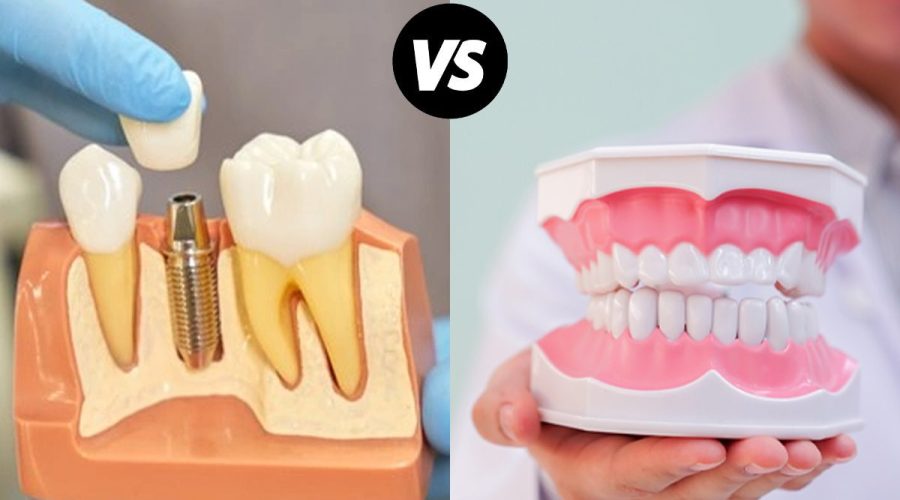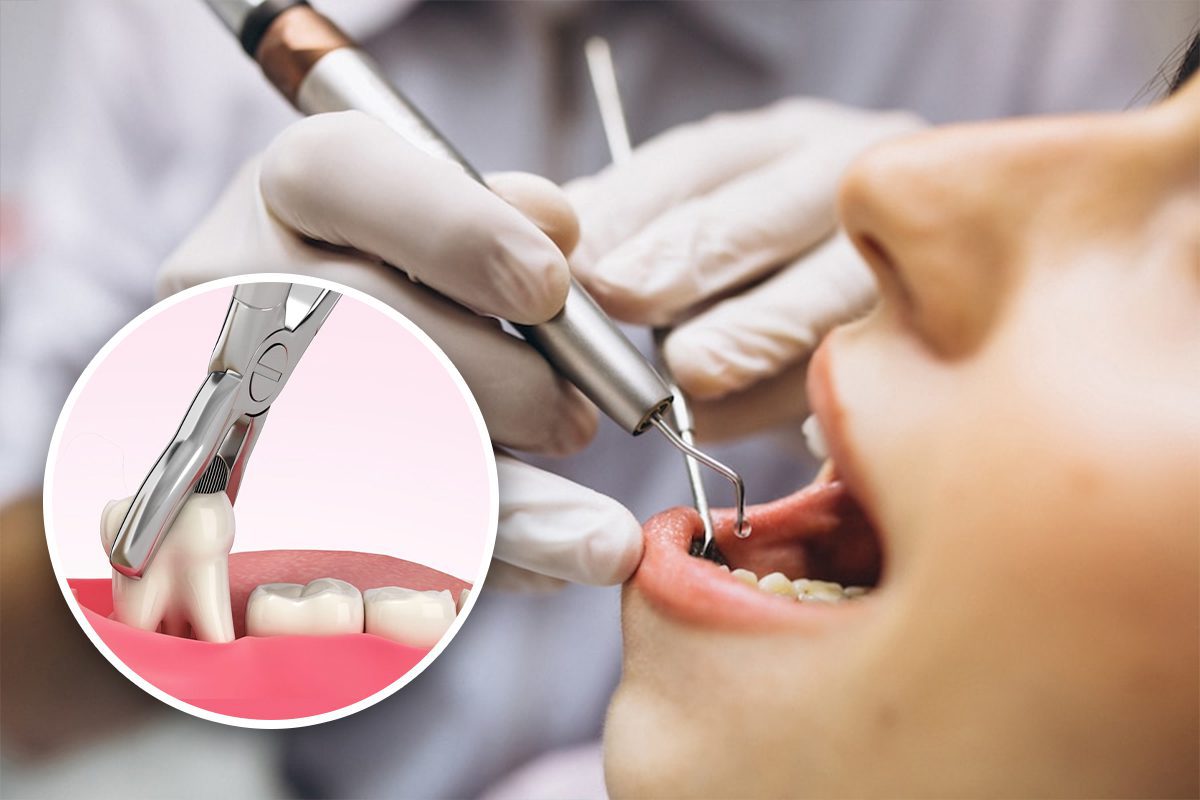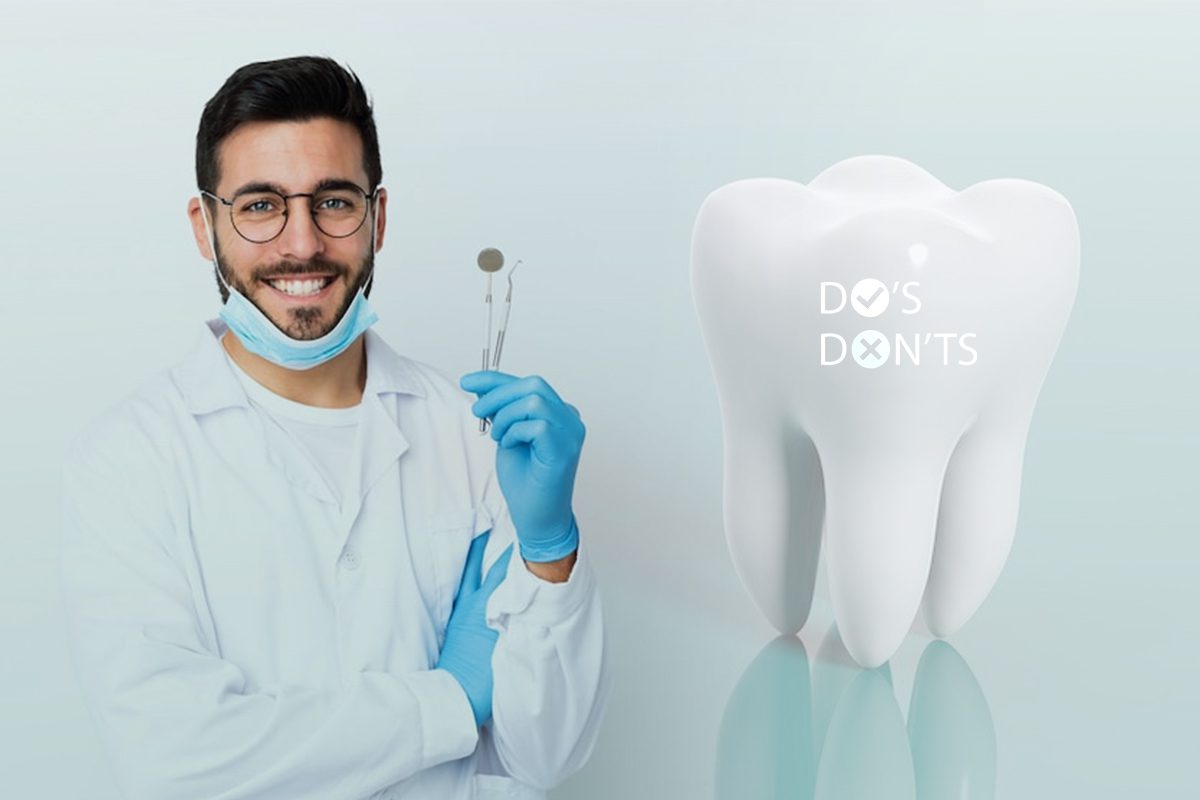What is Dental Implant?
A dental implant is known as a structure that helps in replacing a missing tooth. The surgeon uses screw-shaped devices to insert dental implants into the jaw, an anchor for an artificial tooth, the so-called crown. An abutment is a structure that connects the artificial tooth to the dental implant.
Implants at a dental clinic in cities like antwerpen:
- are more natural and convenient
- have a higher success rate
- improve chewing function
- lead to a lower risk of cavities in adjacent teeth
- lead to better bone preservation at the site of the missing tooth
- cause a decreased sensitivity in the surroundings
- No need to extract and clean teeth every night.
Implantation devices must be attached to the jaw, so a person’s bones must be healthy before implantation.
Procedure – Denture Vs. Implant
Dentures
The denture dental is a prosthetic device that relies on the soft and hard tissues surrounding the space left by the missing tooth.
There are two types of dentures available:
Complete dentures: Used when an individual has lost all of the teeth.
Partial Dentures: Used when you still have natural, healthy teeth.
While traditional dentures are removable, a hybrid option combines a dental implant to create a permanent (non-removable) solution. Dentures are cool! Thanks to technological advances, today’s dentures are always made to fit your mouth and look incredibly realistic.
Dental Implants
Dental Implants Another great way to replace missing teeth. Dental implants are now commonly known as the standard gold indentures. A dental implant such as the natural tooth root is surgically inserted into the jaw in this solution.
These may include:
- A crown of teeth
- Part of a bridge that helps replace multiple teeth
- Permanent or partial dentures
- Dental implants do a great job of restoring your smile to its natural, beautiful appearance.
Maintenance – Denture Vs. Implant
Dentures
- Remove and rinse dentures after eating. Try running water over your dentures to remove food particles and other loose particles. You may want to put a towel on the counter or sink or put some water in the sink. It will protect your dentures from breaking.
- Handle your dentures with care. When cleaning, be careful not to bend or damage the plastic or fasteners.
- Brush your prosthesis at least once a day. Remove and clean your dentures daily by brushing and flossing them. If you are using denture adhesives, wipe the grooves against the gums to remove any glue residue. Do not use denture cleaners in your mouth.
- Soak dentures overnight. Soak dentures in water or a mild soaking solution overnight. Check with your dentist if you are storing your dentures properly overnight. Follow the manufacturer’s instructions for cleaning and soaking solutions.
- Properly rinse your dentures before you put them back in your mouth, mainly using a denture soak solution. These solutions may contain harmful chemicals that cause vomiting, pain, or burns if swallowed.
- Schedule regular dental checkups. Your dentist aims at ensuring a proper fit to avoid slipping and discomfort. You can also check the inside of your mouth to make sure it is healthy.
- Visit your dentist if you have a loose fit. Since loose dentures may cause many problems like irritation, injury, and infection, you must immediately contact your dentist.
Dental Implants
Dental implant patients generally have less than ideal home care, resulting in a partial or toothless condition. Furthermore, these patients may practice inadequate oral hygiene, on the one hand, due to postoperative fear of causing harm, or on the other hand, overzealous home care trying to stay plaque-free.
Any of these situations can have adverse consequences. Therefore, oral hygiene instructions should include detailed verbal guidance and visual demonstration of the long-term success of the implant and its restoration. Oral hygiene techniques and aids used by patients should also be reassessed at each hygiene visit.
Cost Comparison – Dental Implant Vs. Dentures
While there are very inexpensive prosthetic options, we do not recommend inexpensive options for something as crucial as dentures. Dental implants cost is significantly more, and Implant-borne bridges are another alternative.
Another cheaper type of implant is mini dental implants, which can cost up to 70% less than regular implants because they use less material and are easier to insert. Thus, apart from the cost of dentures, you should keep in mind the quality of the service you are availing of.
Complications – Dental Implant Vs. Dentures
Dentures
Many people who get dentures are unaware of the pros and cons of the same. There can be complications afterward. For example, dentures can move in your mouth, especially when you are eating or talking, and food can get tangled underneath and requires special care with brushing, flossing, and hygiene. The jaw itself can atrophy if not worn, depending on how the dentures work.
Dental Implants
The good news is that implants are not at great risk for complications. The most significant complication that patients face is a bone graft for the implantation procedure to be successful. If you follow good oral hygiene, you should not experience any significant complications.
Which one is a long-lasting solution?
The dental implant and dentures have different lifetimes, and implants generally last much longer. Dental implants should last at least ten years, and with good oral hygiene and proper care, they can last a lifetime.
Dentures are more prone to cracking and general wear and tear than dentures and are also at risk of losing shape over time. Conventional dentures can last up to five years and, with proper care, may be a little longer.
When do you have to go for a dental implant or dentures?
Dentures
- Do not go to the dentist for yourself every six months or on the recommendation of your dentist. At least two visits a year are part of good dental hygiene. This will help you maintain your teeth by cleaning and inspecting them thoroughly.
- If you feel loose, your teeth move, or the spaces between your teeth widen, bone loss may occur.
- If you have trouble eating hard or hard food, you can undergo individual dental treatment. However, some significant issues are likely to arise below the surface.
Dental Implants
Dental implants have many cosmetic benefits, but they also play an essential role in the overall function of your mouth. Dental implants support a healthy bite, keep each tooth in the correct position, at the same time support a healthy jaw, and prevent bone loss.
Dental implants may also be required for visual appearance. You may not be sure what your smile looks and feels like, and dental implants can help with this.
Your self-esteem and confidence are essential, and eating comfortably (especially at social gatherings) without smiling and laughing without pain, worry, or restraint is essential.




